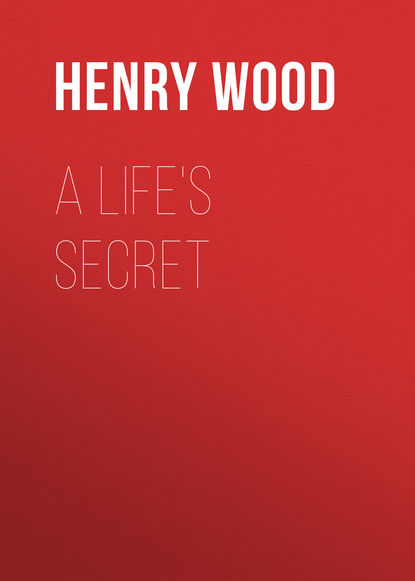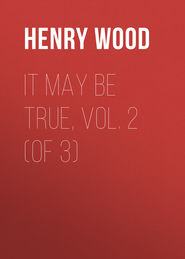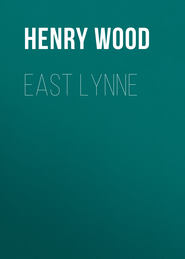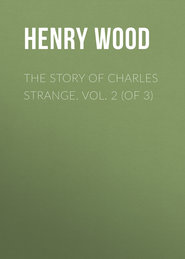По всем вопросам обращайтесь на: info@litportal.ru
(©) 2003-2024.
✖
A Life's Secret
Настройки чтения
Размер шрифта
Высота строк
Поля
'You see now why it might not be convenient to despatch any one but yourself. And, Austin,' added the old lady, following him across the hall, 'take care not to make yourself ill with their Easter cheesecakes. The Lowland farm is famous for them.'
'I will try not,' returned Austin.
He looked back at her, nodding and laughing as he traversed the lawn, and from thence struck into the open road. His way led him past the workshops, closed then, even to the gates, for Easter Monday in that part of the country is a universal holiday. A few minutes, and he turned into the fields; a welcome change from the dusty road. The field way might be a little longer, but it was altogether pleasanter. Easter was late that year, as Mrs. Thornimett observed, and the season was early. The sky was blue and clear, the day warm and lovely; the hedges were budding into leaf, the grass was growing, the clover, the buttercups, the daisies were springing; and an early butterfly fluttered past Austin.
'You have taken wing betimes,' he said, addressing the unconscious insect. 'I think summer must be at hand.'
Halting for a moment to watch the flight, he strode on the quicker afterwards. Supple, active, slender, his steps—the elastic, joyous, tread of youth—scarcely seemed to touch the earth. He always walked fast when busy with thought, and his mind was buried in the hint Mrs. Thornimett had spoken, touching her fears for her husband's health. 'If he is breaking, it's through his close attention to business,' decided Austin, as he struck into the common and was nearing the end of his journey. 'I wish he would take a jolly good holiday this summer. It would set him up; and I know I could manage things without him.'
A large common; a broad piece of waste land, owned by the lord of the manor, but appropriated by anybody and everybody; where gipsies encamped and donkeys grazed, and geese and children were turned out to roam. A wide path ran across it, worn by the passage of farmer's carts and other vehicles. To the left it was bordered in the distance by a row of cottages; to the right, its extent was limited, and terminated in some dangerous gravel pits—dangerous, because they were not protected.
Austin Clay had reached the middle of the path and of the common, when he overtook a lady whom he slightly knew. A lady of very strange manners, popularly supposed to be mad, and of whom he once stood in considerable awe, not to say terror, at which he laughed now. She was a Miss Gwinn, a tall bony woman of remarkable strength, the sister of Gwinn, a lawyer of Ketterford. Gwinn the lawyer did not bear the best of characters, and Ketterford reviled him when they could do it secretly. 'A low, crafty, dishonest practitioner, whose hands couldn't have come clean had he spent his days and nights in washing them,' was amidst the complimentary terms applied to him. Miss Gwinn, however, seemed honest enough, and but for her rancorous manners Ketterford might have grown to feel a sort of respect for her as a woman of sorrow. She had come suddenly to the place many years before and taken up her abode with her brother. She looked and moved and spoke as one half-crazed with grief: what its cause was, nobody knew; but it was accepted by all, and mysteriously alluded to by herself on occasion.
'You have taken a long walk this morning, Miss Gwinn,' said Austin, courteously raising his hat as he came up with her.
She threw back her grey cloak with a quick, sharp movement, and turned upon him. 'Oh, is it you, Austin Clay? You startled me. My thoughts were far away: deep upon another. He could wear a fair outside, and accost me in a pleasant voice, like you.'
'That is rather a doubtful compliment, Miss Gwinn,' he returned, in his good-humoured way. 'I hope I am no darker inside than out. At any rate, I don't try to appear different from what I am.'
'Did I accuse you of it? Boy! you had better go and throw yourself into one of those gravel pits and die, than grow up to be deceitful,' she vehemently cried. 'Deceit has been the curse of my days. It has made me what I am; one whom the boys hoot after, and call–'
'No, no; not so bad as that,' interrupted Austin, soothingly. 'You have been cross with them sometimes, and they are insolent, mischievous little ragamuffins. I am sure every thoughtful person respects you, feeling for your sorrow.'
'Sorrow!' she wailed. 'Ay. Sorrow, beyond what falls to the ordinary lot of man. The blow fell upon me, though I was not an actor in it. When those connected with us do wrong, we suffer; we, more than they. I may be revenged yet,' she added, her expression changing to anger. 'If I can only come across him.'
'Across whom?' naturally asked Austin.
'Who are you, that you should seek to pry into my secrets?' she passionately resumed. 'I am five-and-fifty to-day—old enough to be your mother, and you presume to put the question to me! Boys are coming to something.'
'I beg your pardon; I but spoke heedlessly, Miss Gwinn, in answer to your remark. Indeed I have no wish to pry into anybody's business. And as to "secrets," I have eschewed them, since, a little chap in petticoats, I crept to my mother's room door to listen to one, and got soundly whipped for my pains.'
'It is a secret that you will never know, or anybody else; so put its thoughts from you. Austin Clay,' she added, laying her hand upon his arm, and bending forward to speak in a whisper, 'it is fifteen years, this very day, since its horrors came out to me! And I have had to carry it about since, as I best could, in silence and in pain.'
She turned round abruptly as she spoke, and continued her way along the broad path; while Austin Clay struck short off towards the gravel pits, which was his nearest road to the Lowland farm. Silent and abandoned were the pits that day; everybody connected with them was enjoying holiday with the rest of the world. 'What a strange woman she is!' he thought.
It has been said that the gravel pits were not far from the path. Austin was close upon them, when the sound of a horse's footsteps caused him to turn. A gentleman was riding fast down the common path, from the opposite side to the one he and Miss Gwinn had come, and Austin shaded his eyes with his hand to see if it was any one he knew. No; it was a stranger. A slender man, of some seven-and-thirty years, tall, so far as could be judged, with thin, prominent aquiline features, and dark eyes. A fine face; one of those that impress the beholder at first sight, as it did Austin, and, once seen, remain permanently on the memory.
'I wonder who he is?' cried Austin Clay to himself. 'He rides well.'
Possibly Miss Gwinn might be wondering the same. At any rate, she had fixed her eyes on the stranger, and they seemed to be starting from her head with the gaze. It would appear that she recognised him, and with no pleasurable emotion. She grew strangely excited. Her face turned of a ghastly whiteness, her hands closed involuntarily, and, after standing for a moment in perfect stillness, as if petrified, she darted forward in his pathway, and seized the bridle of his horse.
'So! you have turned up at last! I knew—I knew you were not dead!' she shrieked, in a voice of wild raving. 'I knew you would some time be brought face to face with me, to answer for your wickedness.'
Utterly surprised and perplexed, or seeming to be, at this summary attack, the gentleman could only stare at his assailant, and endeavour to get his bridle from her hand. But she held it with a firm grasp.
'Let go my horse,' he said. 'Are you mad?'
'You were mad,' she retorted, passionately. 'Mad in those old days; and you turned another to madness. Not three minutes ago, I said to myself that the time would come when I should find you. Man! do you remember that it is fifteen years ago this very day that the—the—crisis of the sickness came on? Do you know that never afterwards–'
'Do not betray your private affairs to me,' interrupted the gentleman. 'They are no concern of mine. I never saw you in my life. Take care! the horse will do you an injury.'
'No! you never saw me, and you never saw somebody else!' she panted, in a tone that would have been mockingly sarcastic, but for its wild passion. 'You did not change the current of my whole life! you did not turn another to madness! These equivocations are worthy of you.'
'If you are not insane, you must be mistaking me for some other person,' he replied, his tone none of the mildest, though perfectly calm. 'I repeat that, to my knowledge, I never set eyes upon you in my life. Woman! have you no regard for your own safety? The horse will kill you! Don't you see that I cannot control him?'
'So much the better if he kills us both,' she shrieked, swaying up and down, to and fro, with the fierce motions of the angry horse. 'You will only meet your deserts: and, for myself, I am tired of life.'
'Let go!' cried the rider.
'Not until you have told me where you live, and where you may be found. I have searched for you in vain. I will have my revenge; I will force you to do justice. You–'
In her sad temper, her dogged obstinacy, she still held the bridle. The horse, a spirited animal, was passionate as she was, and far stronger. He reared bolt upright, he kicked, he plunged; and, finally, he shook off the obnoxious control, to dash furiously in the direction of the gravel pits. Miss Gwinn fell to the ground.
To fall into the pit would be certain destruction to both man and horse. Austin Clay had watched the encounter in amazement, though he could not hear the words of the quarrel. In the humane impulse of the moment, disregarding the danger to himself, he darted in front of the horse, arrested him on the very brink of the pit, and threw him back on his haunches.
Snorting, panting, the white foam breaking from him, the animal, as if conscious of the doom he had escaped, now stood in trembling quiet, obedient to the control of his master. That master threw himself from his back, and turned to Austin.
'Young gentleman, you have saved my life.'
There was little doubt of that. Austin accepted the fact without any fuss, feeling as thankful as the speaker, and quite unconscious at the moment of the wrench he had given his own shoulder.
'It would have been an awkward fall, sir. I am glad I happened to be here.'
'It would have been a killing fall,' replied the stranger, stepping to the brink, and looking down. 'And your being here must be owing to God's wonderful Providence.'
He lifted his hat as he spoke, and remained a minute or two silent and uncovered, his eyes closed. Austin, in the same impulse of reverence, lifted his.
'Did you see the strange manner in which that woman attacked me?' questioned the stranger.
'Yes.'
'She must be insane.'
'She is very strange at times,' said Austin. 'She flies into desperate passions.'
'Passions! It is madness, not passion. A woman like that ought to be shut up in Bedlam. Where would be the satisfaction to my wife and family, if, through her, I had been lying at this moment at the bottom there, dead? I never saw her in my life before; never.'
'Is she hurt? She has fallen down, I perceive.'
'Hurt! not she. She could call after me pretty fiercely when my horse shook her off. She possesses the rage and strength of a tiger. Good fellow! good Salem! did a mad woman frighten and anger you?' added the stranger, soothing his horse. 'And now, young sir,' turning to Austin, 'how shall I reward you?'
Austin broke into a smile at the notion.
'Not at all, thank you,' he said. 'One does not merit reward for such a thing as this. I should have deserved sending over after you, had I not interposed. To do my best was a simple matter of duty—of obligation; but nothing to be rewarded for.'
'Had he been a common man, I might have done it,' thought the stranger; 'but he is evidently a gentleman. Well, I may be able to repay it in some manner as you and I pass through life,' he said, aloud, mounting the now subdued horse. 'Some neglect the opportunities, thrown in their way, of helping their fellow-creatures; some embrace them, as you have just done. I believe that whichever we may give—neglect or help—will be returned to us in kind: like unto a corn of wheat, that must spring up what it is sown; or a thistle, that must come up a thistle.'
'As to embracing the opportunity—I should think there's no man living but would have done his best to save you, had he been standing here.'











